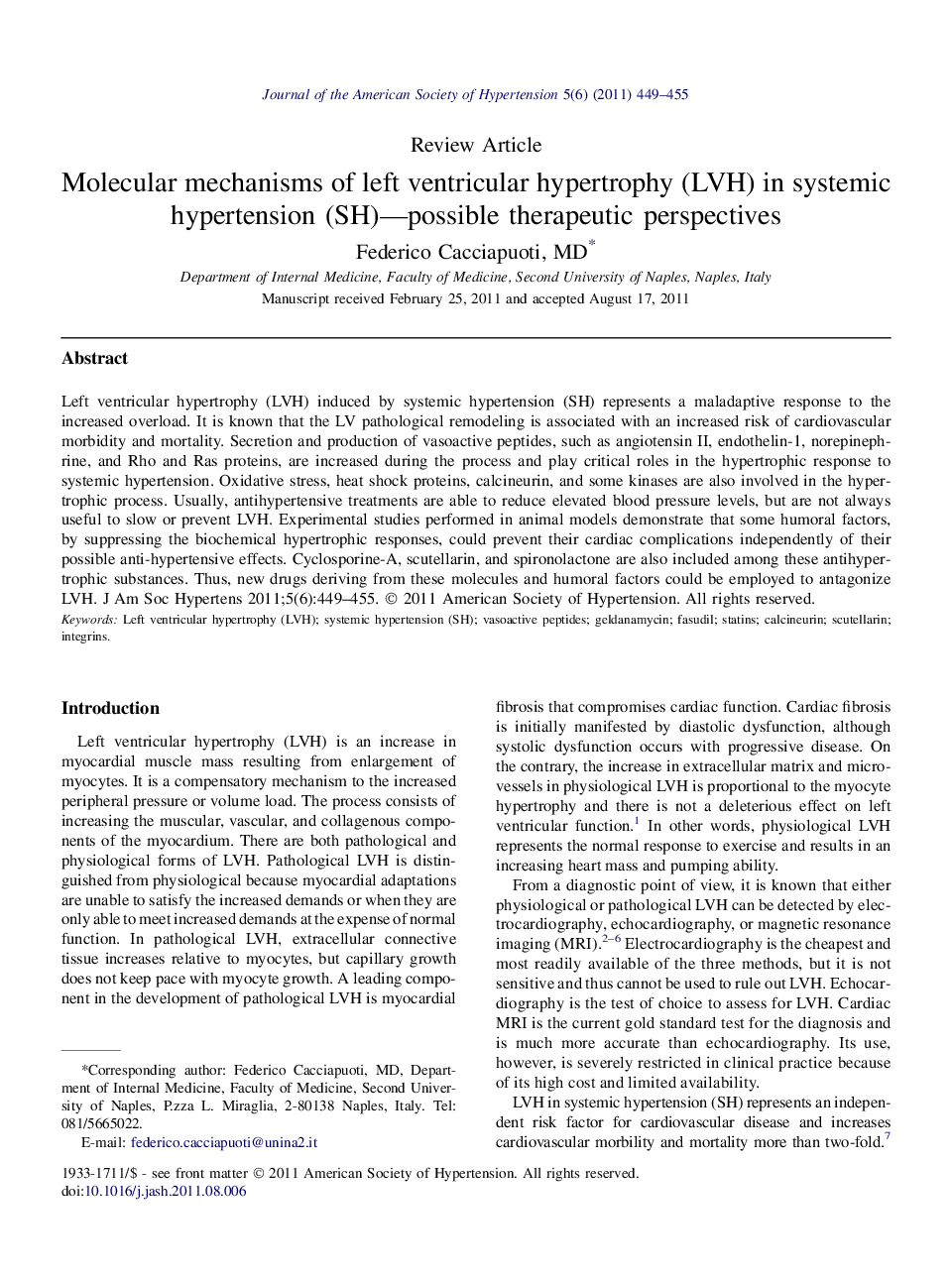| Article ID | Journal | Published Year | Pages | File Type |
|---|---|---|---|---|
| 2956972 | Journal of the American Society of Hypertension | 2011 | 7 Pages |
Left ventricular hypertrophy (LVH) induced by systemic hypertension (SH) represents a maladaptive response to the increased overload. It is known that the LV pathological remodeling is associated with an increased risk of cardiovascular morbidity and mortality. Secretion and production of vasoactive peptides, such as angiotensin II, endothelin-1, norepinephrine, and Rho and Ras proteins, are increased during the process and play critical roles in the hypertrophic response to systemic hypertension. Oxidative stress, heat shock proteins, calcineurin, and some kinases are also involved in the hypertrophic process. Usually, antihypertensive treatments are able to reduce elevated blood pressure levels, but are not always useful to slow or prevent LVH. Experimental studies performed in animal models demonstrate that some humoral factors, by suppressing the biochemical hypertrophic responses, could prevent their cardiac complications independently of their possible anti-hypertensive effects. Cyclosporine-A, scutellarin, and spironolactone are also included among these antihypertrophic substances. Thus, new drugs deriving from these molecules and humoral factors could be employed to antagonize LVH.
